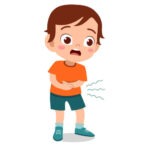Sweating is a natural process that helps your body regulate its temperature and eliminate toxins. Sweating is normal when you are hot, exercising, nervous or under stress. However, some people sweat more than usual or at inappropriate times. This can cause discomfort, embarrassment and social anxiety. In this blog post, we will discuss the causes, symptoms and treatment of sweating, as well as some tips on how to prevent and cope with it.
What causes sweating?
Sweating is controlled by the nervous system, which sends signals to the sweat glands in your skin. The amount and location of sweating depend on various factors, such as:
• Temperature: Your body sweats to cool itself down when it is exposed to heat or high humidity. This is called thermoregulatory sweating and it occurs all over your body.
• Exercise: Your body sweats to prevent overheating when you are physically active. This is also called thermoregulatory sweating and it occurs mainly on your forehead, face, neck, chest, back, and limbs.
• Emotions: Your body sweats to cope with strong emotions such as fear, anger, anxiety or excitement. This is called emotional sweating and it occurs mainly on your palms, soles, armpits, and groin.
• Hormones: Your body sweats in response to hormonal changes such as puberty, menstruation, pregnancy or menopause. This is called hormonal sweating and it can affect any part of your body.
• Medications: Some medications can cause sweating as a side effect or interact with your body’s temperature regulation. Some of the common medications that can cause sweating are antibiotics, antihistamines, anticonvulsants, immunosuppressants, chemotherapy drugs, and nonsteroidal anti-inflammatory drugs (NSAIDs).
• Medical conditions: Some medical conditions can cause sweating as a symptom or complication. Some of the common conditions that can cause sweating are diabetes, hyperthyroidism, infections, fever, cancer, acromegaly, lymphoma, leukemia or malaria.
What are the symptoms of sweating?
The main symptom of sweating is having wetness or dampness on your skin or clothes. Other symptoms may include:
• Odor: Sweat itself is odorless, but when it mixes with bacteria on your skin or clothes, it can produce an unpleasant smell. This is more common in areas where sweat accumulates such as armpits, groin or feet.
• Stains: Sweat can stain your clothes or bedding, especially if it contains salt or minerals. This can affect the color and texture of your fabrics.
• Skin problems: Excessive sweating can cause skin irritation, inflammation, infection or rash. This is more common in areas where sweat rubs against your skin or clothes such as armpits, groin or feet.
How is sweating diagnosed?
Sweating is usually diagnosed based on the history of symptoms and a physical examination. In some cases, additional tests may be needed to identify the cause of sweating or rule out other conditions. These tests may include:
• Blood tests: To check for signs of infection, inflammation, diabetes, thyroid problems or hormonal imbalances.
• Urine tests: To check for signs of diabetes or kidney problems.
• Stool tests: To check for signs of intestinal infections or parasites.
• Chest X-rays: To check for signs of lung infections or pneumonia.
• CT scans or MRI scans: To check for signs of brain infections or tumors.
How is sweating treated?
The treatment of sweating depends on the cause and severity of the condition. Some general measures that can help with sweating include:
• Wearing breathable fabrics: Choosing clothes made of natural fibers such as cotton, linen or wool can help absorb sweat and keep you cool. Avoid synthetic fabrics such as polyester, nylon or rayon that trap heat and moisture.
• Changing clothes frequently: Changing your clothes when they become wet or smelly can help prevent odor and skin problems. You may also want to change your bedding regularly if you sweat at night.
• Applying antiperspirants: Antiperspirants are products that reduce the amount of sweat produced by your sweat glands. They contain aluminum salts that block the pores in your skin. You can apply antiperspirants to any part of your body that sweats excessively such as armpits, palms, soles or groin. You can find antiperspirants in different forms such as sprays, roll-ons, sticks or creams.
• Using deodorants: Deodorants are products that mask the smell of sweat by killing bacteria or adding fragrance. They do not reduce the amount of sweat produced by your sweat glands. You can use deodorants along with antiperspirants to enhance their effect. You can find deodorants in different forms such as sprays, roll-ons, sticks or creams.
• Seeking medical attention: If your sweating is severe, persistent, or affects your quality of life, You should consult your doctor for additional evaluation and treatment. You may need medications that reduce the activity of your nervous systems such as anticholinergics, beta-blockers, or antidepressants. You may also need procedures that destroy or remove your sweat glands such as botox injections, iontophoresis, microwave therapy or surgery.
How can sweating be prevented?
Some tips to prevent sweating include:
• Avoiding triggers: Avoiding factors that stimulate your nervous system such as heat, humidity, spicy foods, caffeine, alcohol or stress can help reduce sweating.
• Practicing good hygiene: Washing your body and clothes regularly with soap and water can help remove sweat and bacteria that cause odor and skin problems.
• Staying hydrated: Drinking enough fluids throughout the day can help regulate your body temperature and prevent dehydration which can cause sweating.
• Exercising moderately: Exercising regularly can help improve your blood circulation and metabolism which can reduce sweating. However, avoid exercising too intensely or too close to bedtime as this can increase your body temperature and stimulate sweating.
Conclusion
Sweating is a natural process that helps your body regulate its temperature and eliminate toxins. Sweating is normal when you are hot exercising nervous or under stress However some people sweat more than usual or at inappropriate times This can cause discomfort embarrassment and social anxiety Sweating can have various causes such as temperature exercise emotions hormones medications medical conditions Sweating can also cause other symptoms such as odor stains skin problems Sweating is usually diagnosed by taking your history and examining you In some cases additional tests may be needed Sweating is usually treated by wearing breathable fabrics changing clothes frequently applying antiperspirants using deodorants seeking medical attention if needed Sweating can be prevented by avoiding triggers practicing good hygiene staying hydrated exercising moderately.



